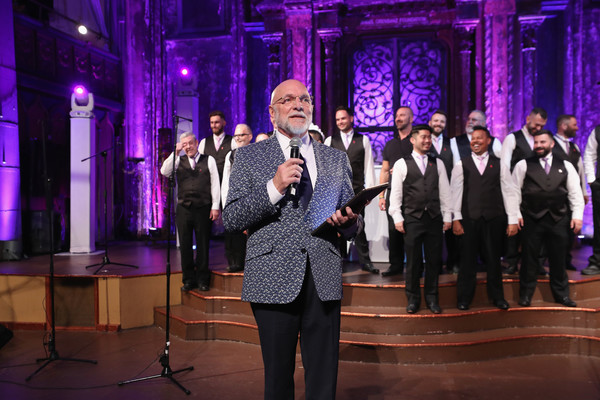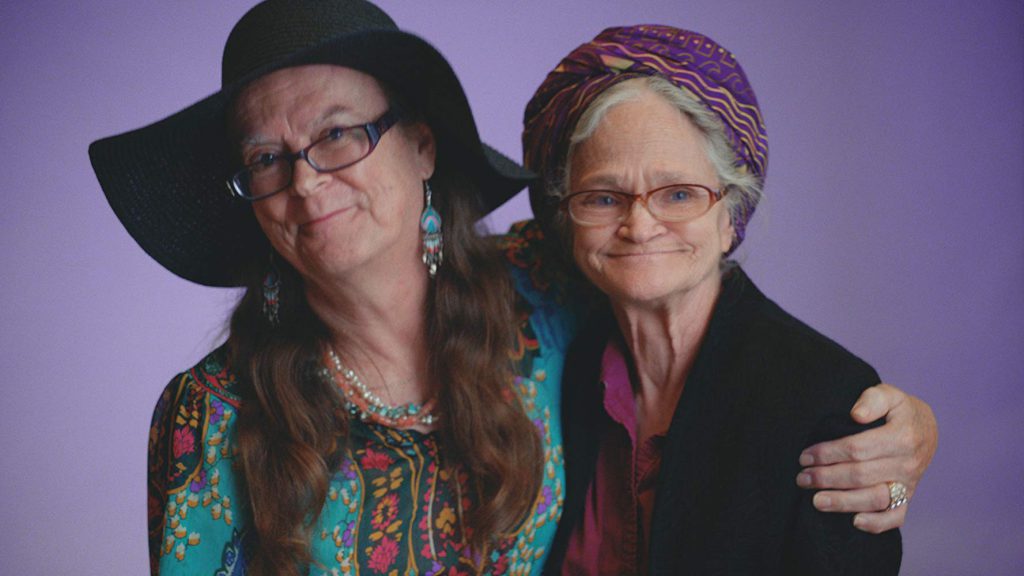Our exciting trip to Telluride, CO has ended, yet we are still buzzing about the fantastic documentaries we all saw at Mountainfilm! One of the last films was shown on Monday, May 27th in the Off-Width venue: Gay Chorus Deep South (2019, David Charles Rodrigues). From all the documentaries I was able to see, this is the one I related to the most, emphasizing social issues that dealt with identity, communities and politics. This documentary represents the 2019 Mountainfilm festival’s theme: equity.

Opening performance in Gay Chorus Deep South.
“There is a storm. And we have to dance with the storm.” Tim Seelig, the artistic director for the San Francisco Gay Men’s Chorus (SFGMC), opens the documentary with his thoughts on being a part of this musical family. When he says there’s a storm, he is referring to the discrimination against the LGBTQ+ community in the southern United States. “…we have to dance with the storm,” refers to the SFGMC on tour performing in 25 different churches in the South, refusing to stand down. Tim is one of five central characters of the film that drives the narrative through voice-over narration and onscreen interviews. The audience grows a personal connection with Tim when he reveals his younger adulthood, his involvement with the church, his married life, being a father to a son and daughter and then outcast from his hometown after coming out as gay.

Middle: Tim Seelig; director of the San Francisco Gay Men’s Chorus.
We are also introduced to and grow an emotional connection with the charismatic SFGMC singer, Jimmy White. Jimmy shares his rough story of being socially rejected from his father for being gay and is, updated by Rodrigues, “…[currently] fighting stage four liver cancer,” all the while claiming that the only thing left in his life worth living for is his involvement in the choir. Jimmy can cope with his terminal health issue by being a part of and supported by the choir family/community.

Jimmy White; SFGMC member.
The documentary has an impressive visual aesthetic by a repetitive pallet of bright, light purple as the backdrop color during interviews and for onscreen text and title cards. The purple represents The Lavender Pen Tour that showcased SFGMC performances in Mississippi, Tennessee, Alabama, North and South Carolina, and Georgia (not presented in the film).The purple also defined the tour to be the main focus of the documentary, even though the audience isn’t aware of the connection until later on.

A lesbian couple was interviewed with the light lavender backdrop.
A nice addition to the Lavender Tour and the documentary was the presentation of the Oakland Interfaith Gospel Choir (OIGC). The choir consisted of not only gay chorus members but lesbians, transgender individuals, transvestites and drag queens. The OIGC supported the SFGMC and was open to being interviewed throughout the documentary. Their performances added a slightly campy, but powerful, tone to some of their performances. For example, a drag queen in a long dress sang about issues with loving a man while pulling various objects from their chest.

A drag queen performs during the Lavender Pen Tour.
Equity plays a large part in being the driving theme of the documentary. Examples of equity are the equal treatment of individuals and groups regardless of their religious beliefs, gender identity and sexual orientation. The film ends with the SFGMC presenting their final performance in a Baptist Church of South Carolina. The fact that the Baptist Church members loved the performance, knowing perfectly well that it was a gay chorus, was a means to say that not only is there accepting people that value equality in the South but that there is hope that the LGBTQ+ community can feel, someday, equally welcome in even the most discriminatory-prone public spaces. The documentary presents Tim and the chorus having grave fears about performing in South Carolina. Rodrigues, during his Q&A, said, “…a bomb sweep had to be performed before the group was cleared to enter the church.” It is sad to know that there is still fear for personal safety today for the LGBTQ+ community.
As a member of the LGBTQ+ community, this documentary was empowering and inspirational. My hope is that in the future there will be more documentaries that focus on social issues involving gender and sexual identity.
References/Citations:

Trackbacks/Pingbacks